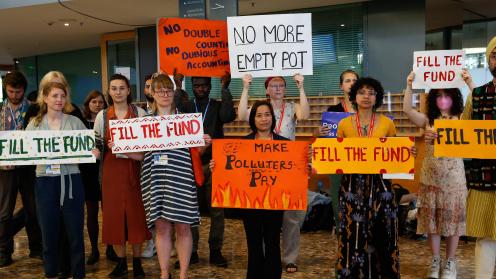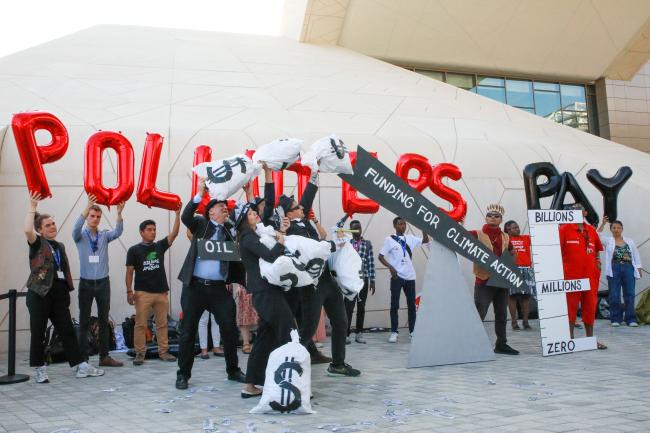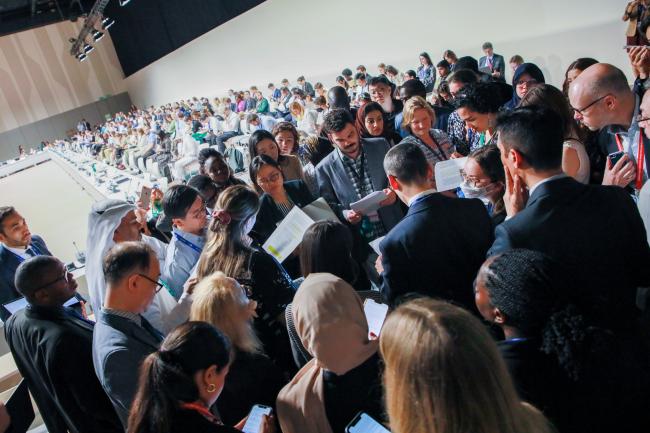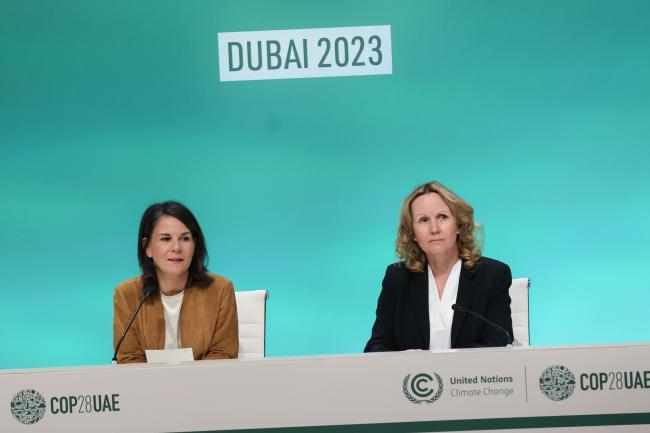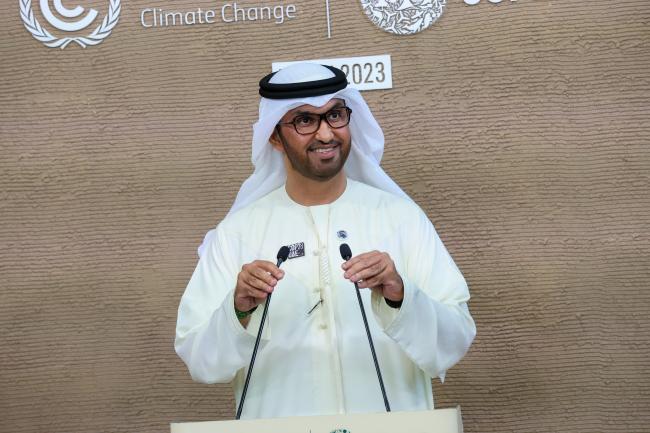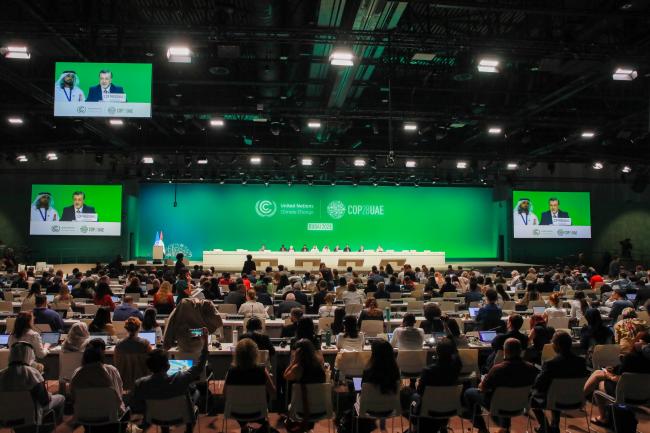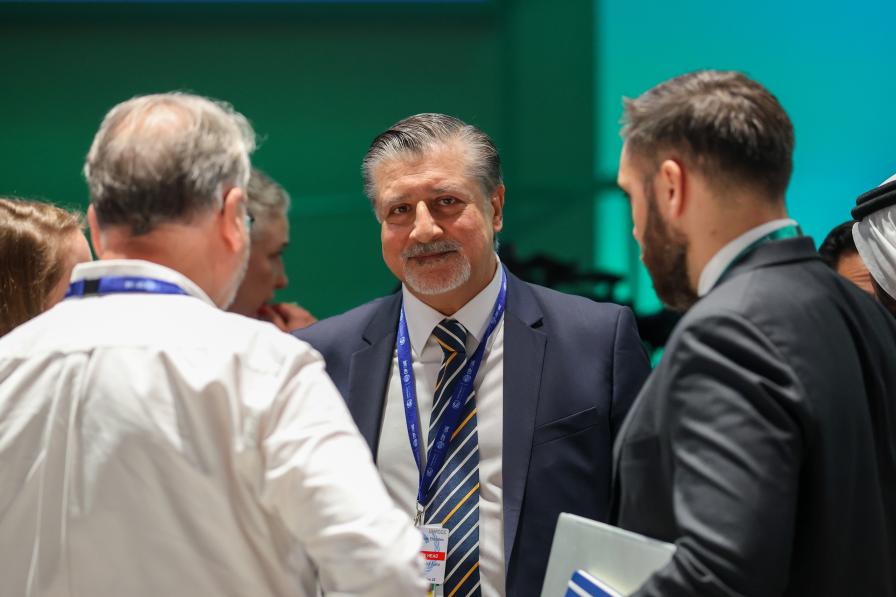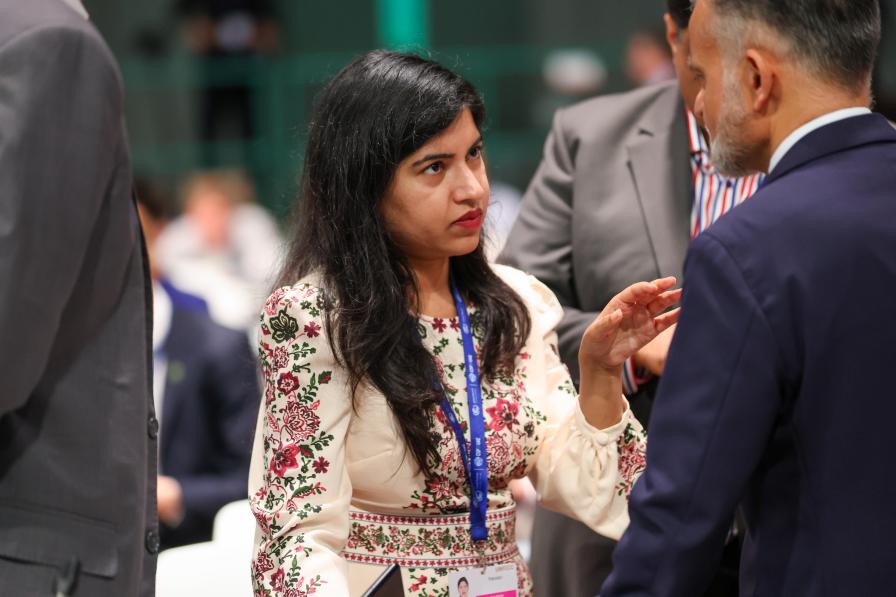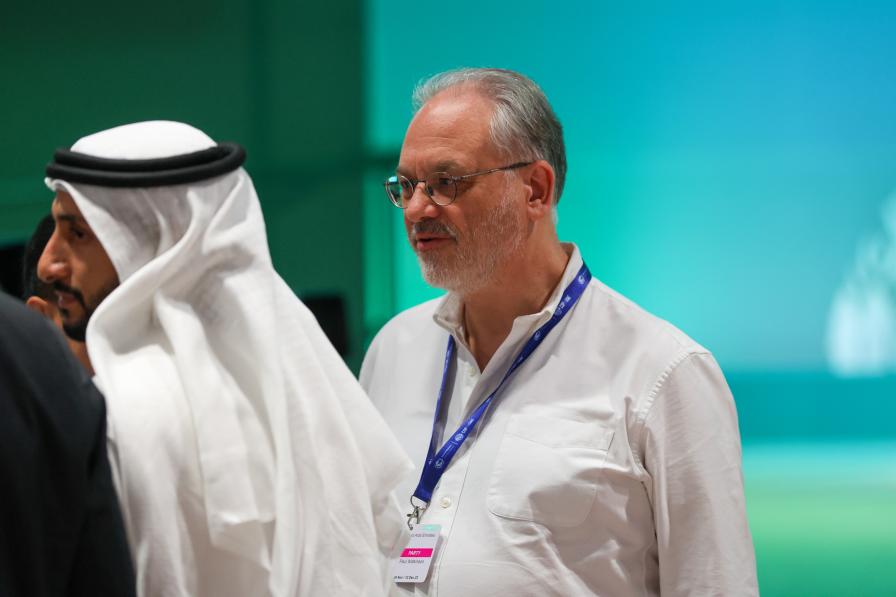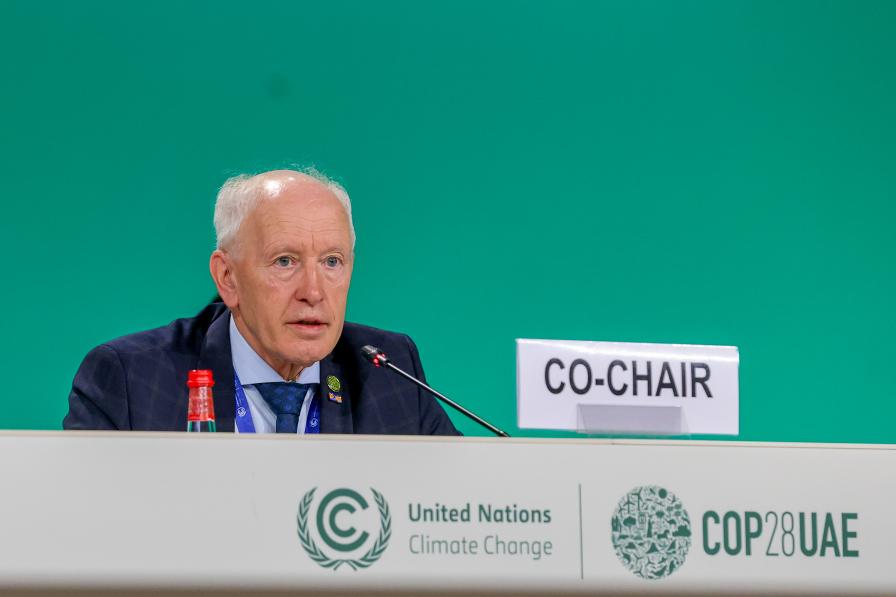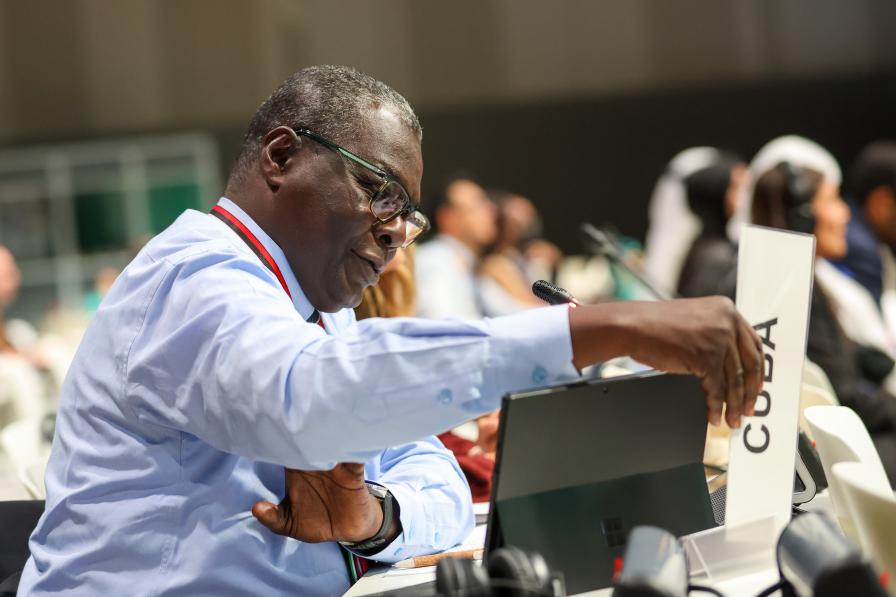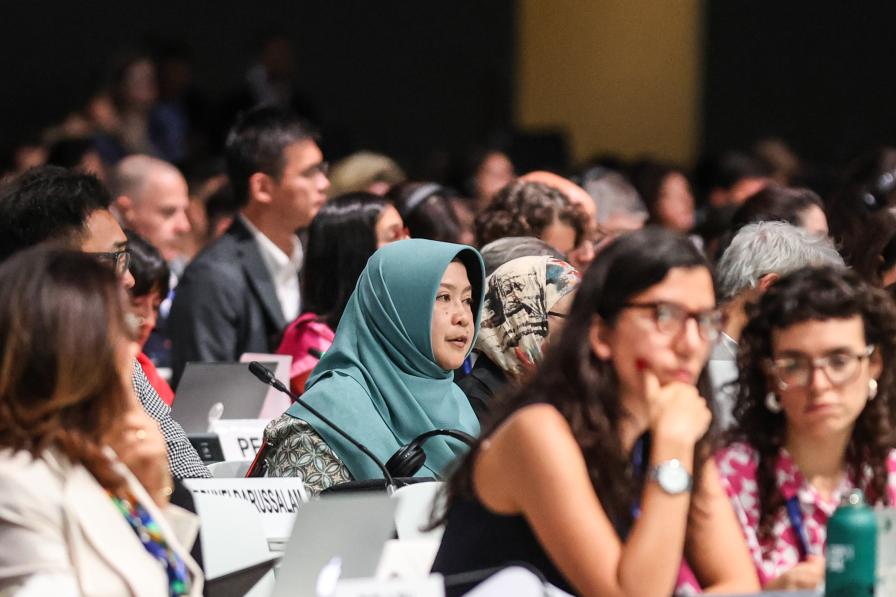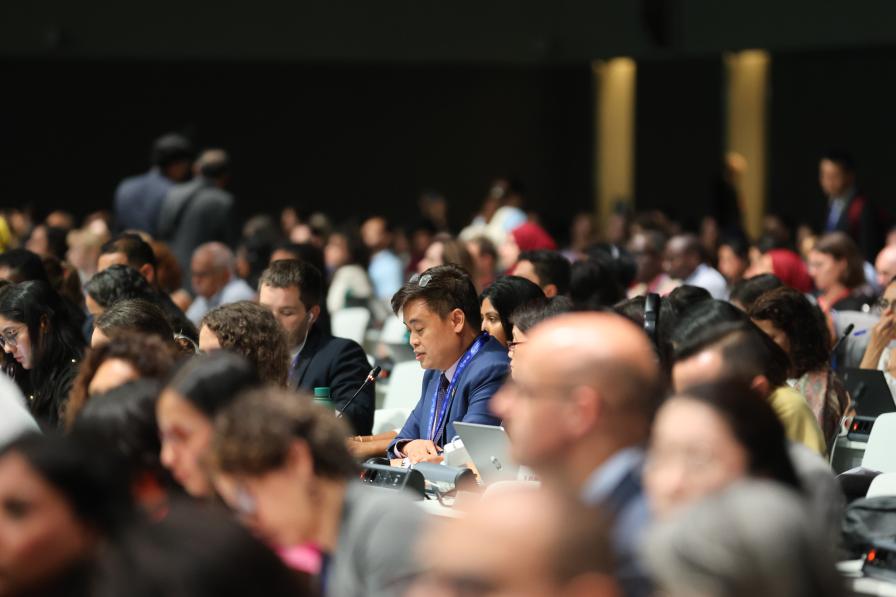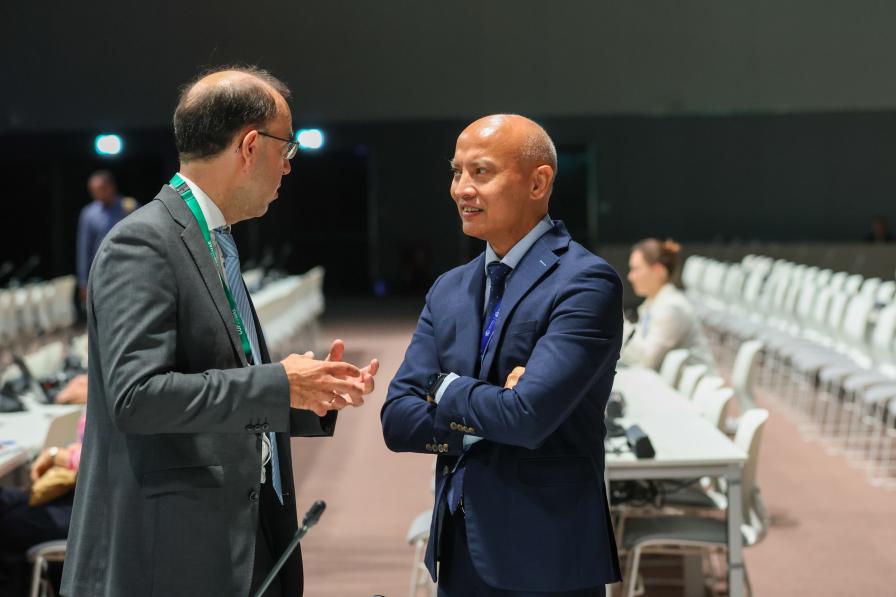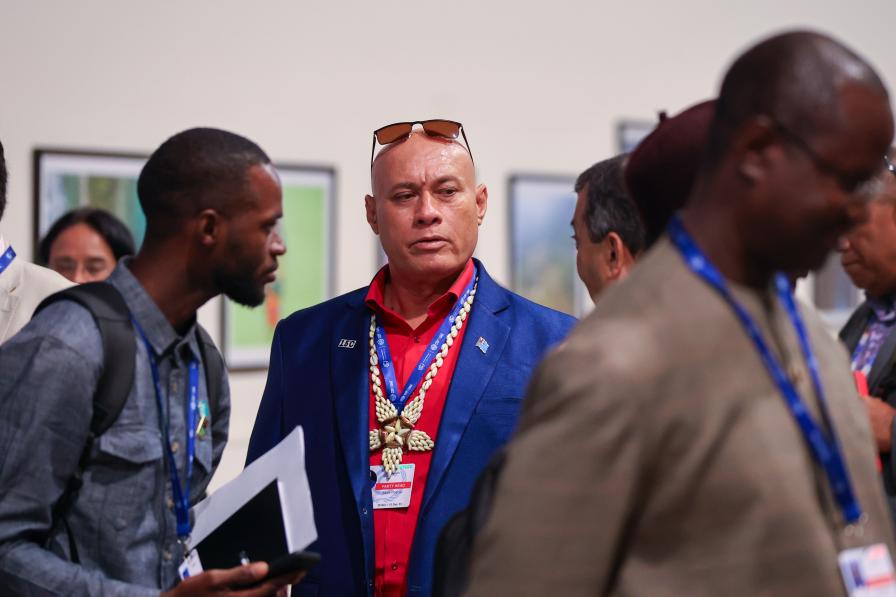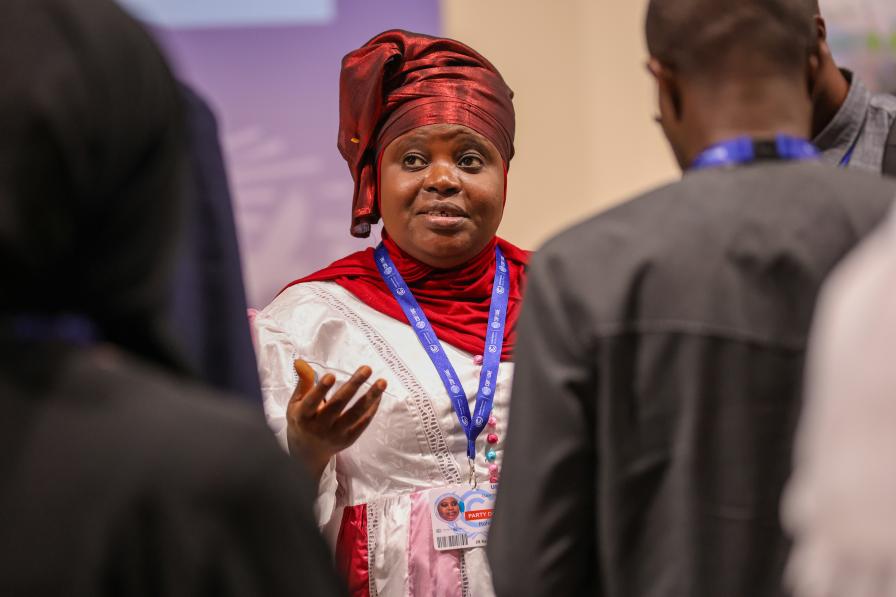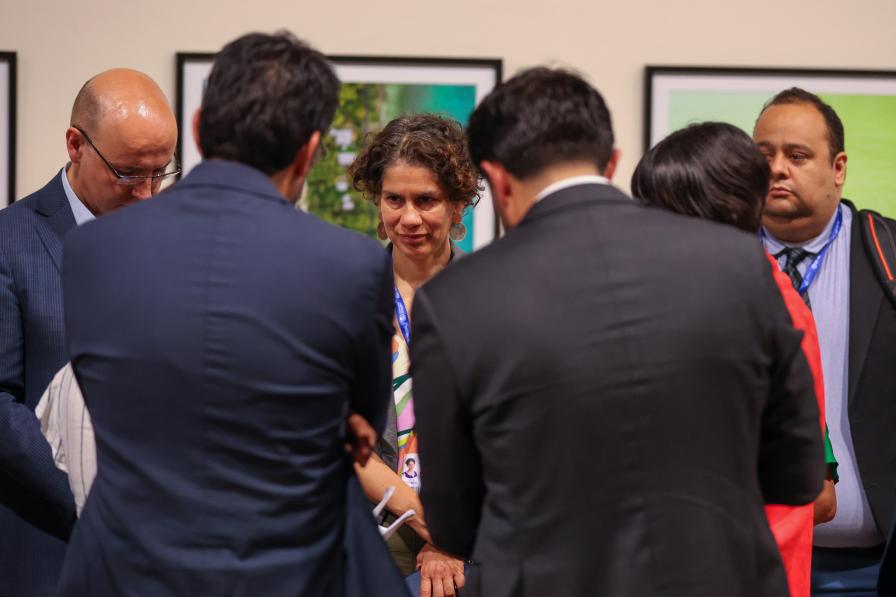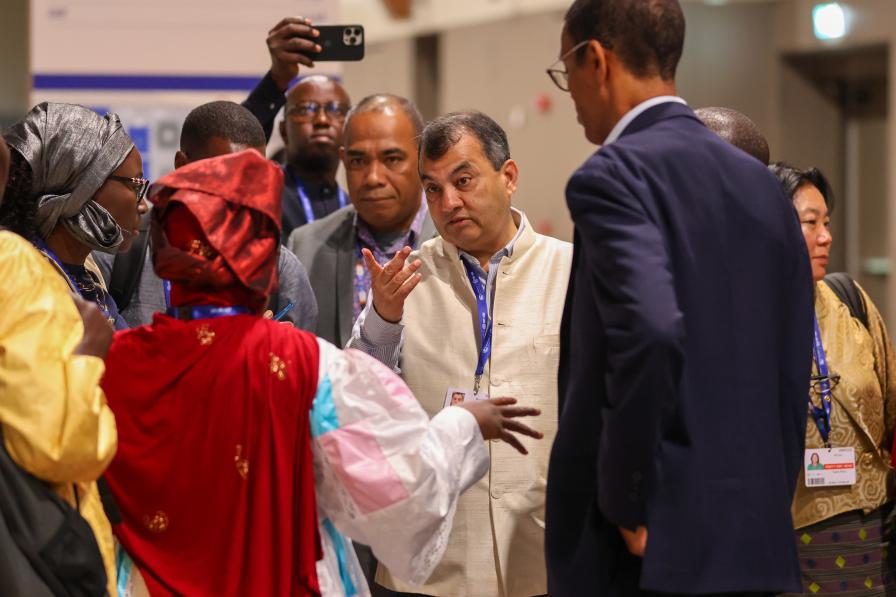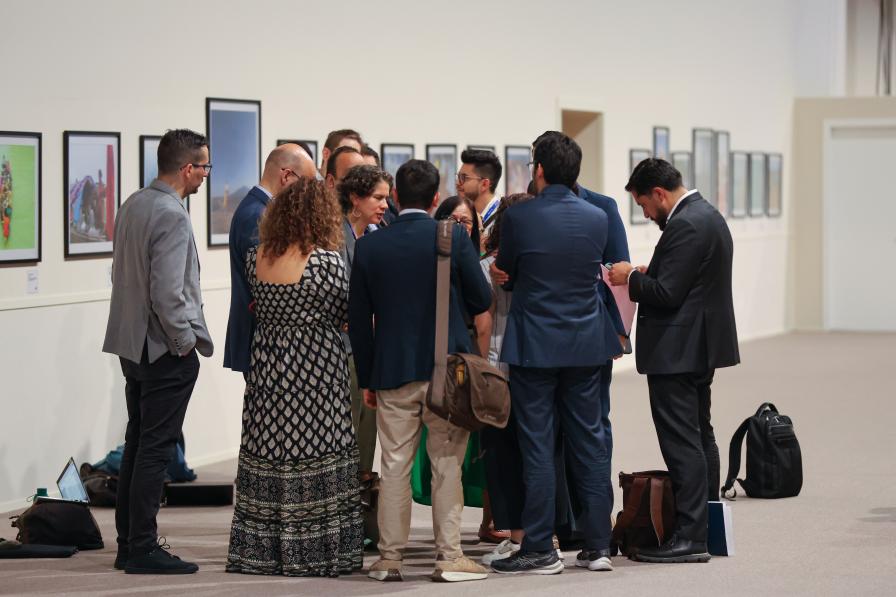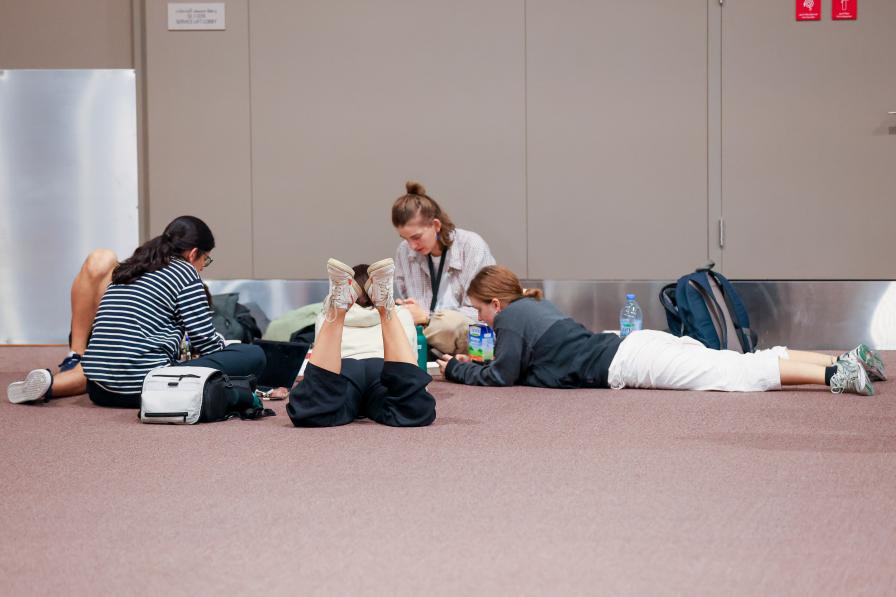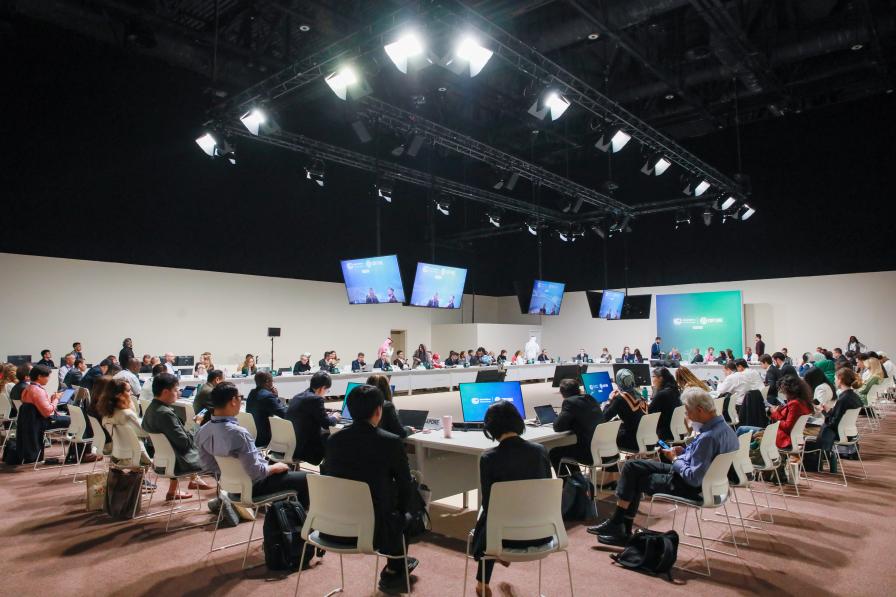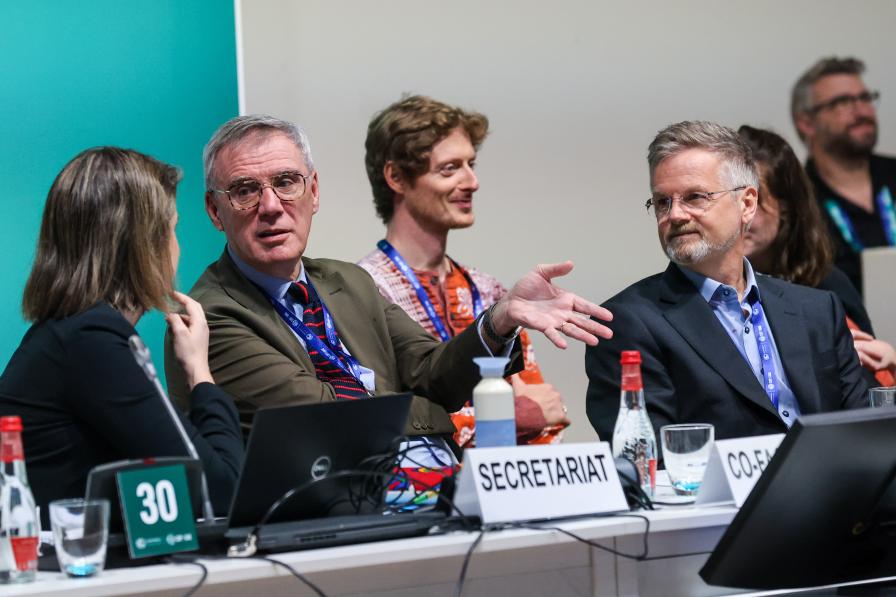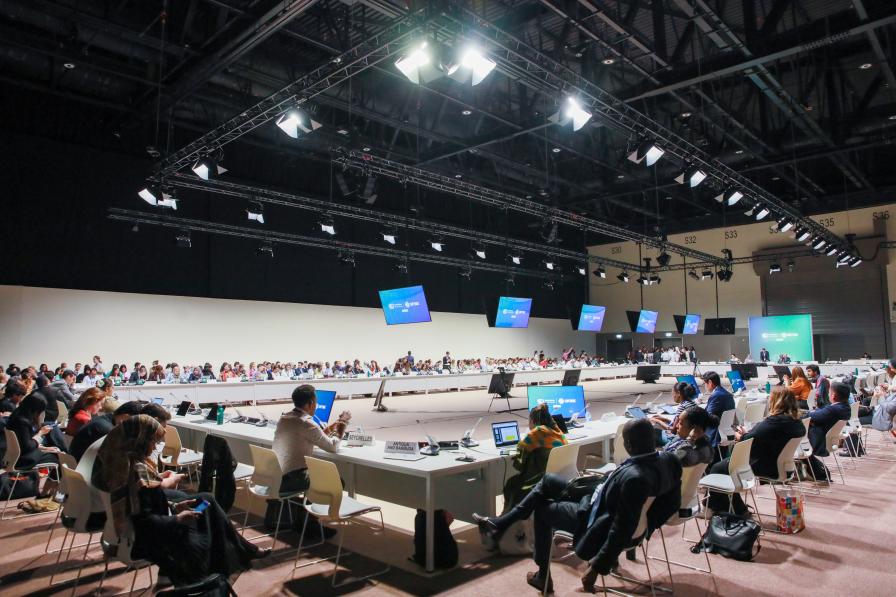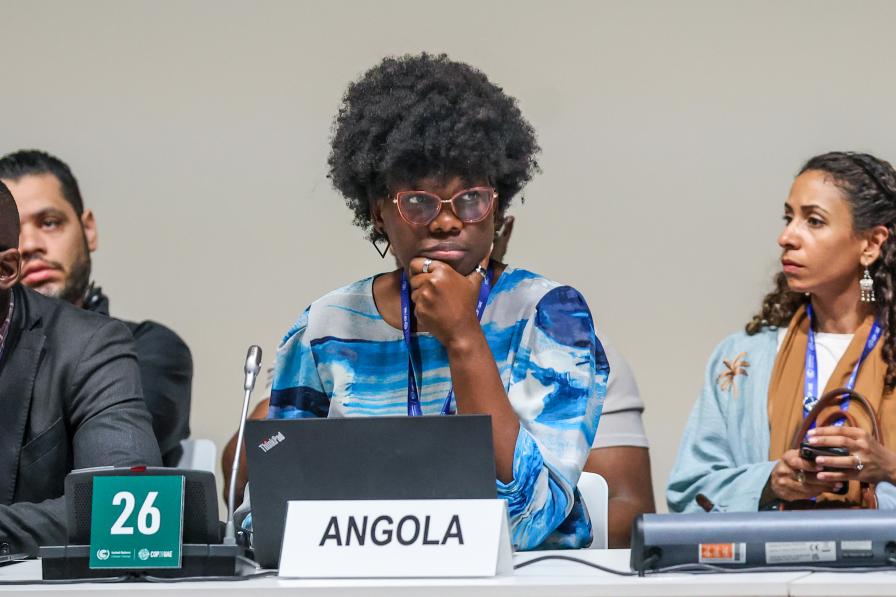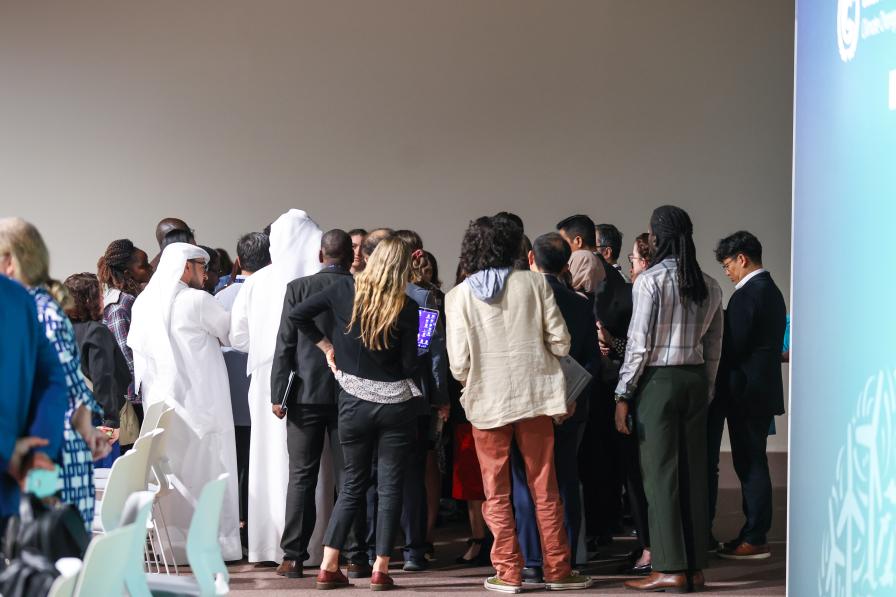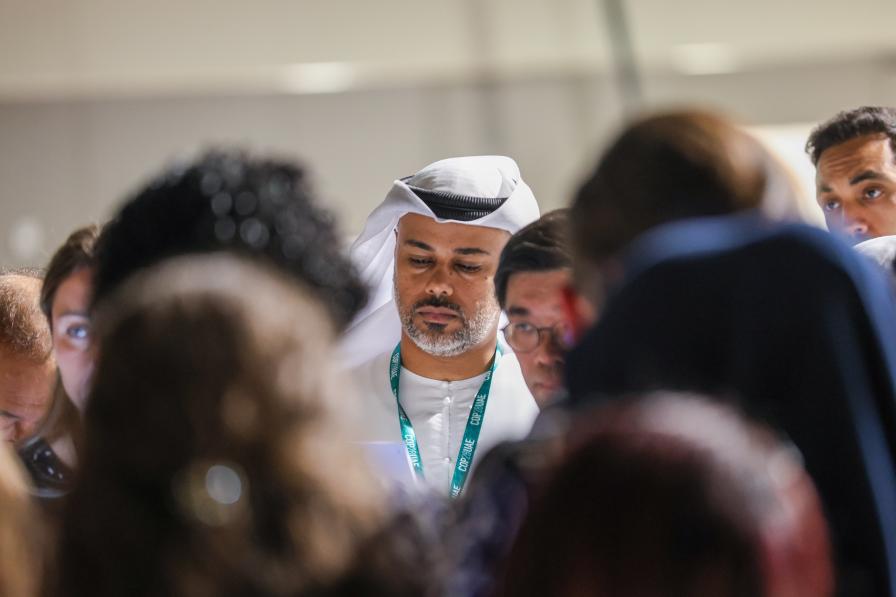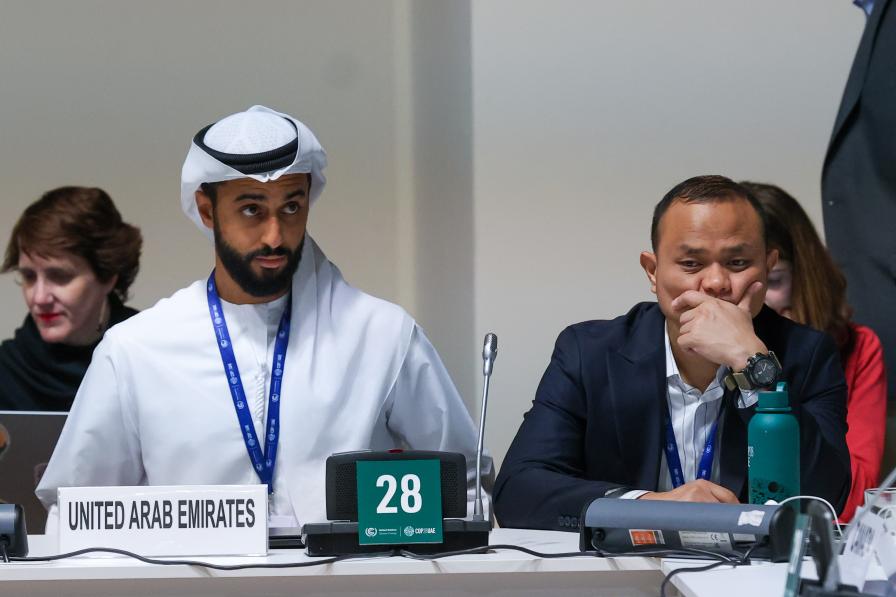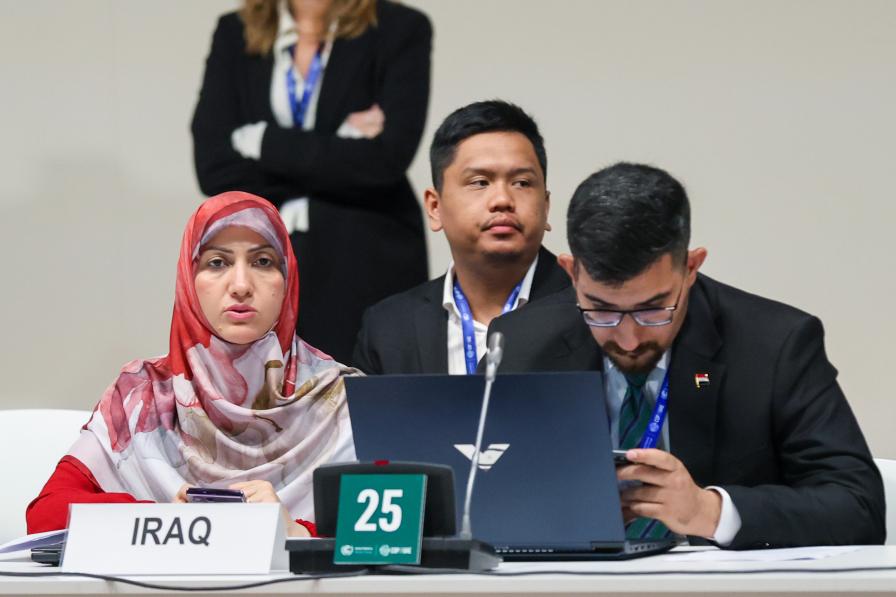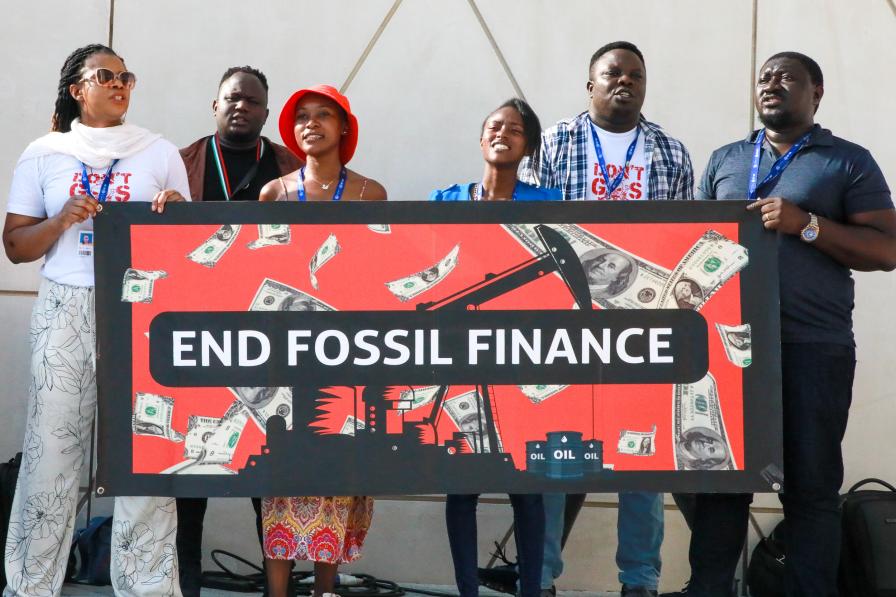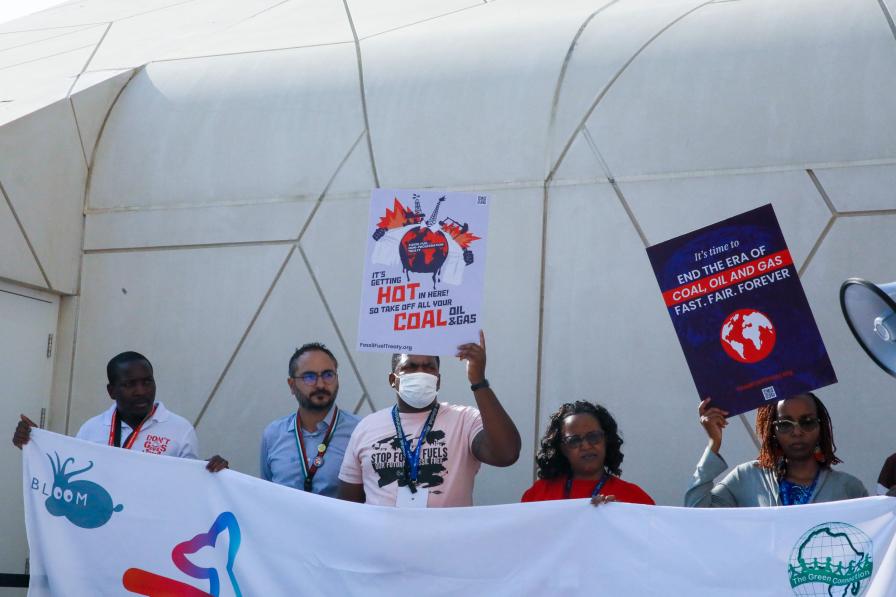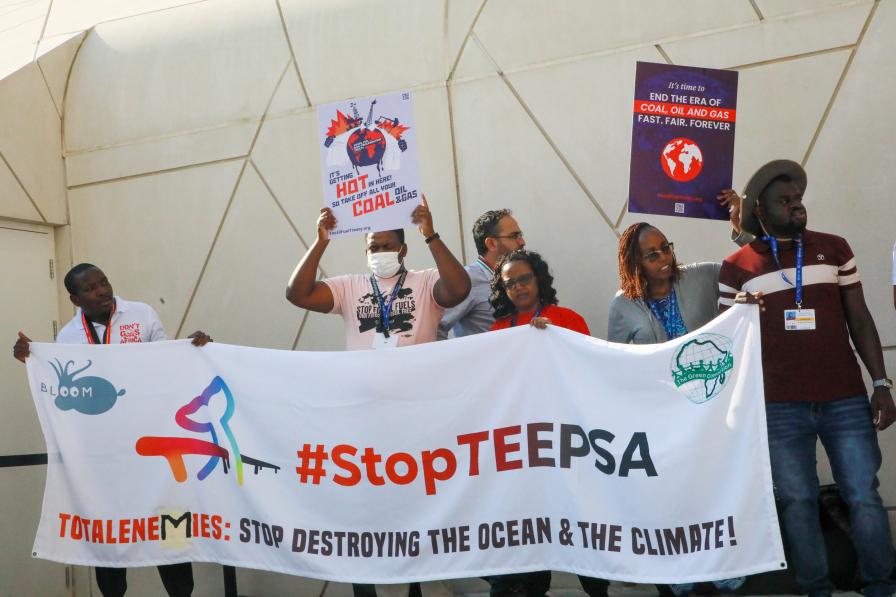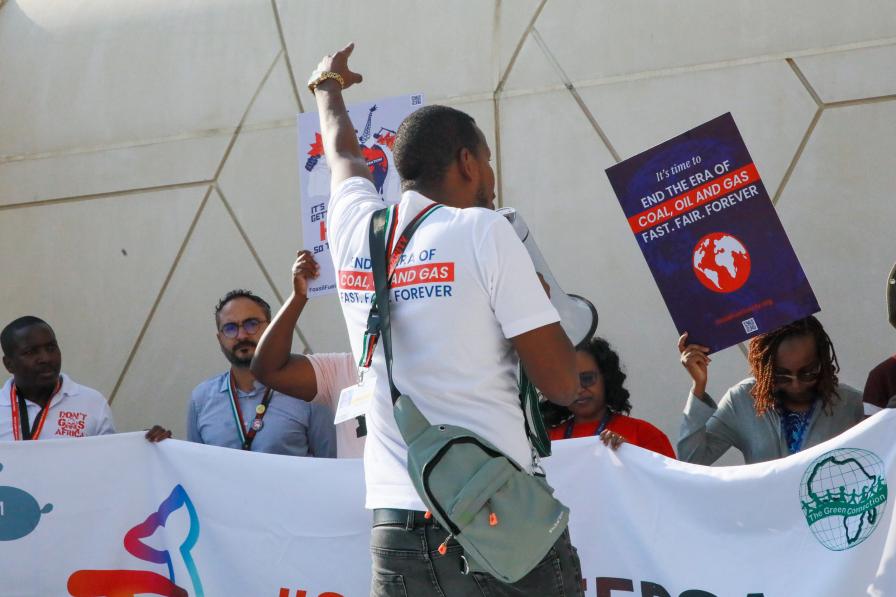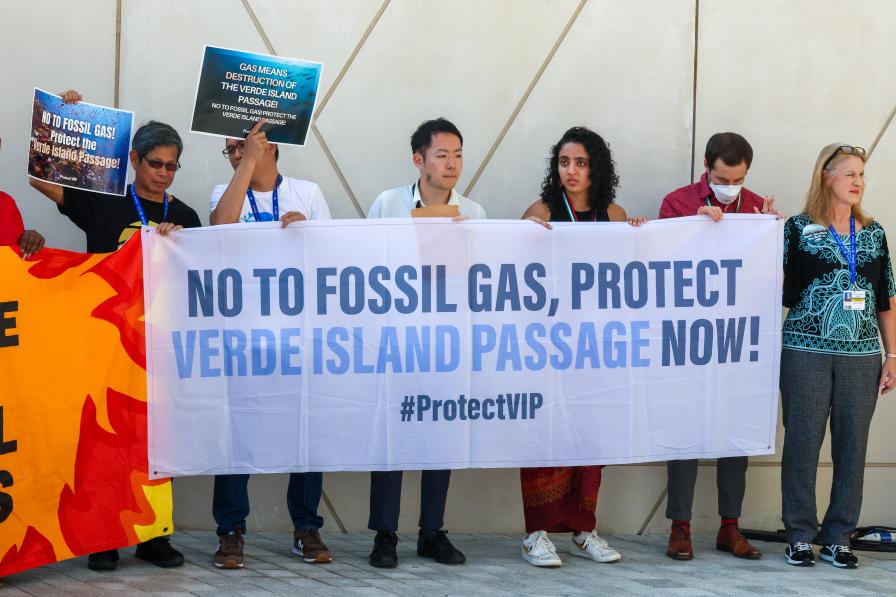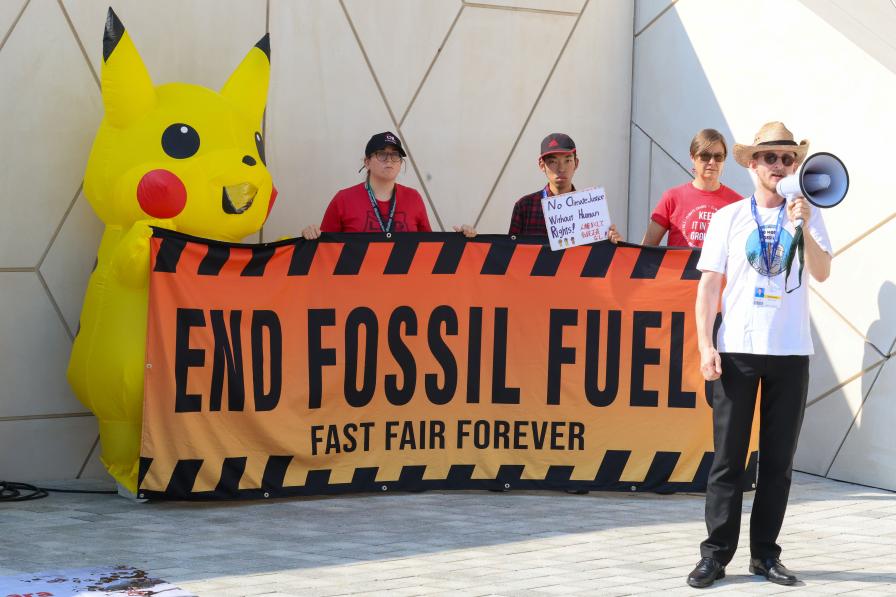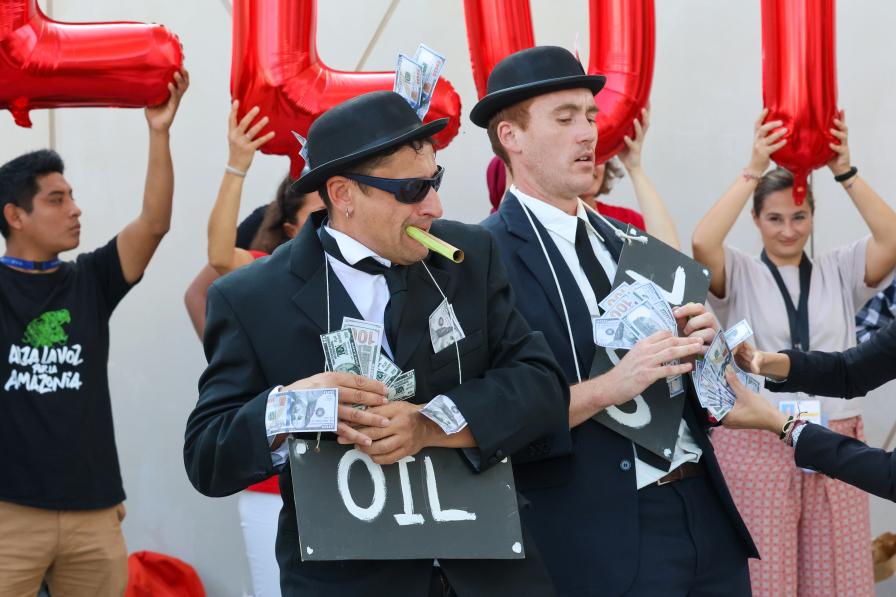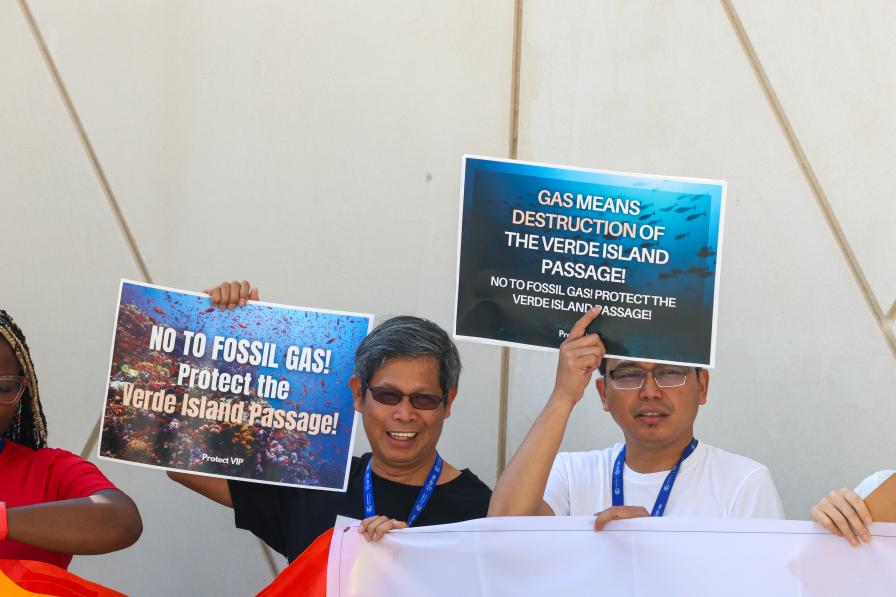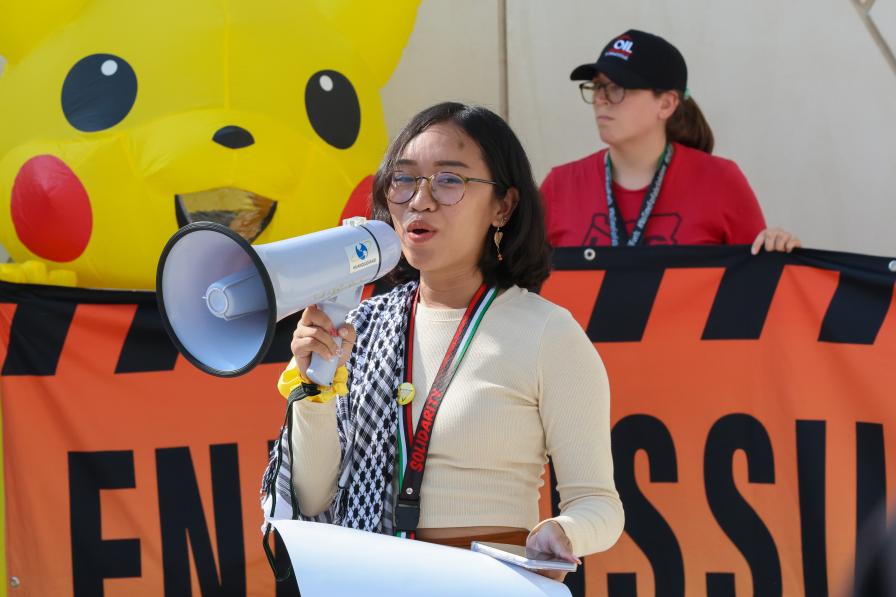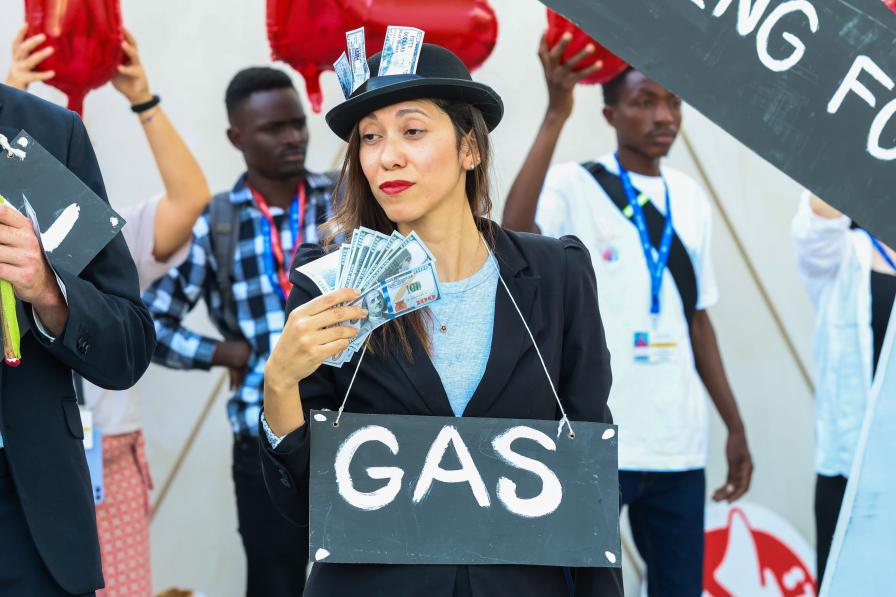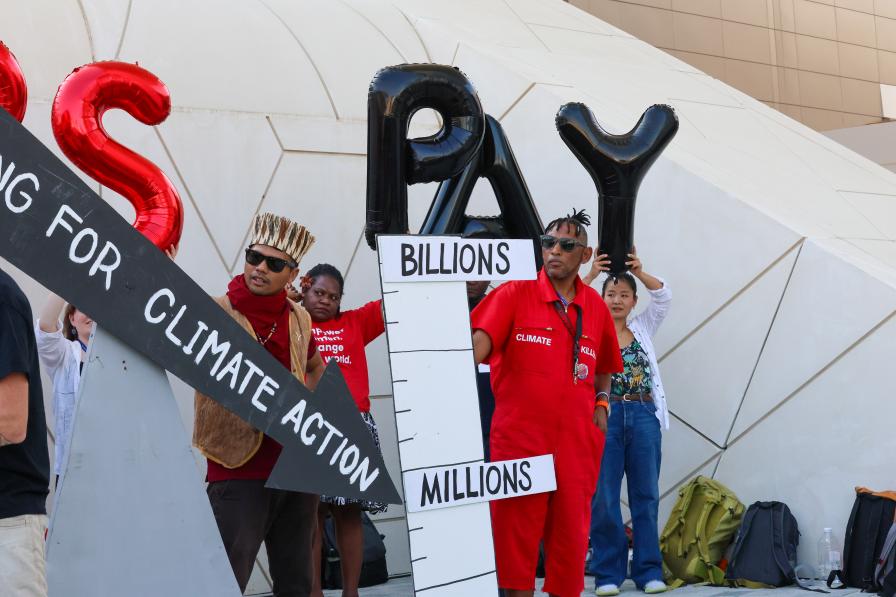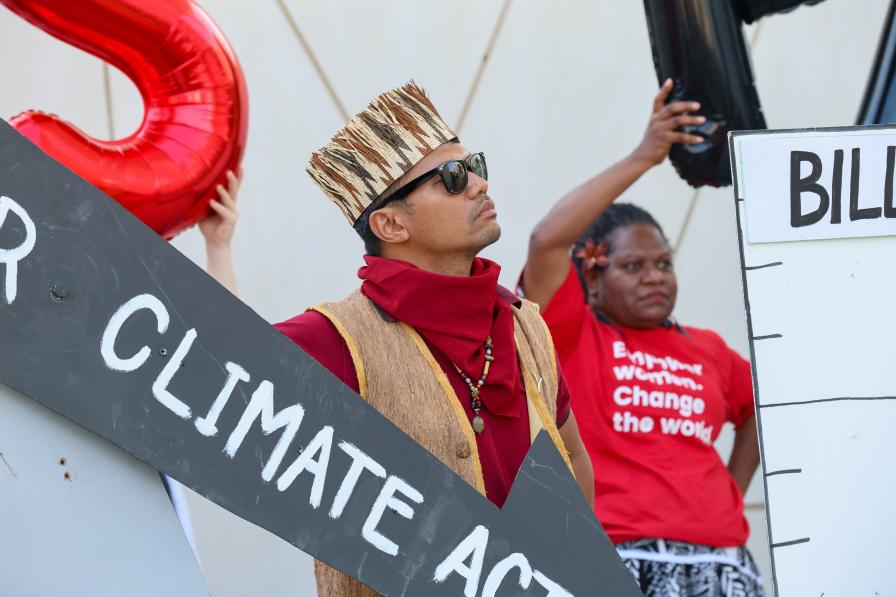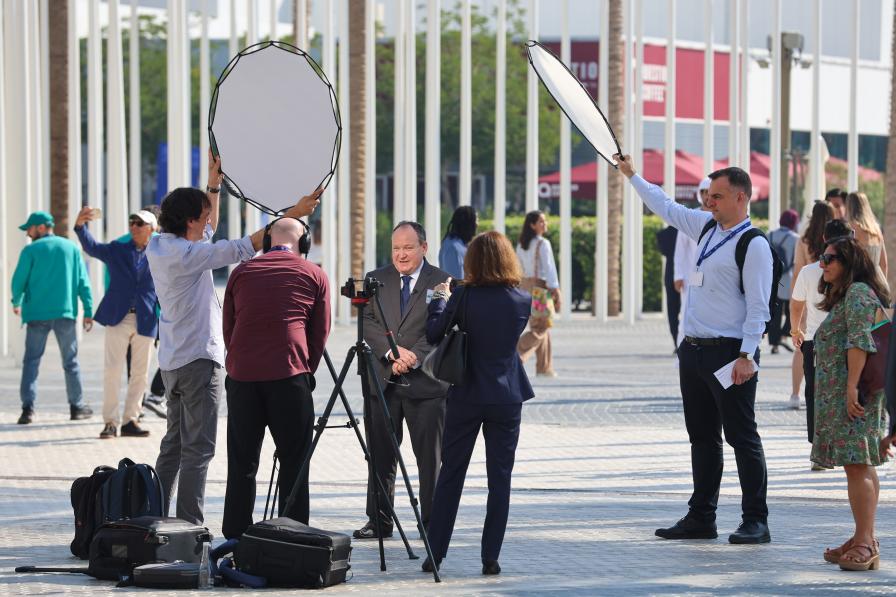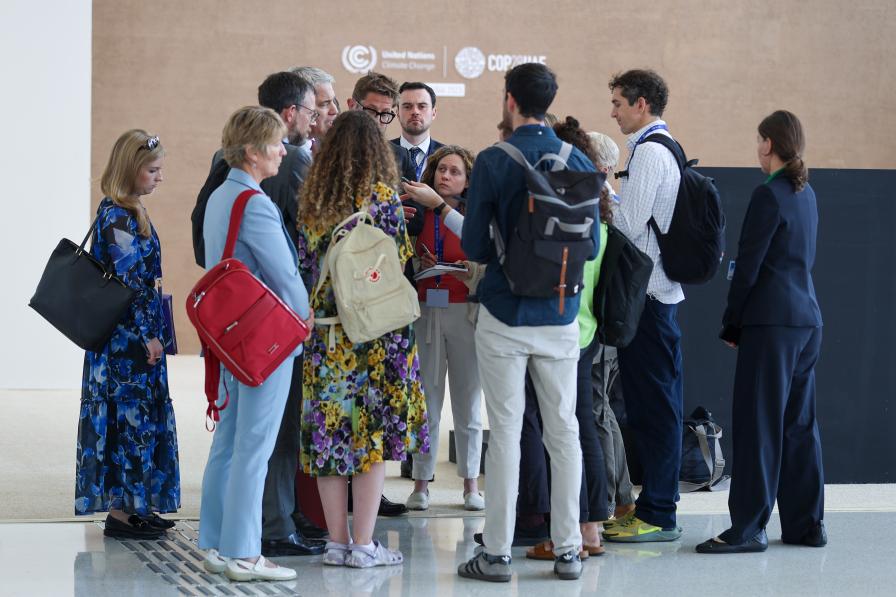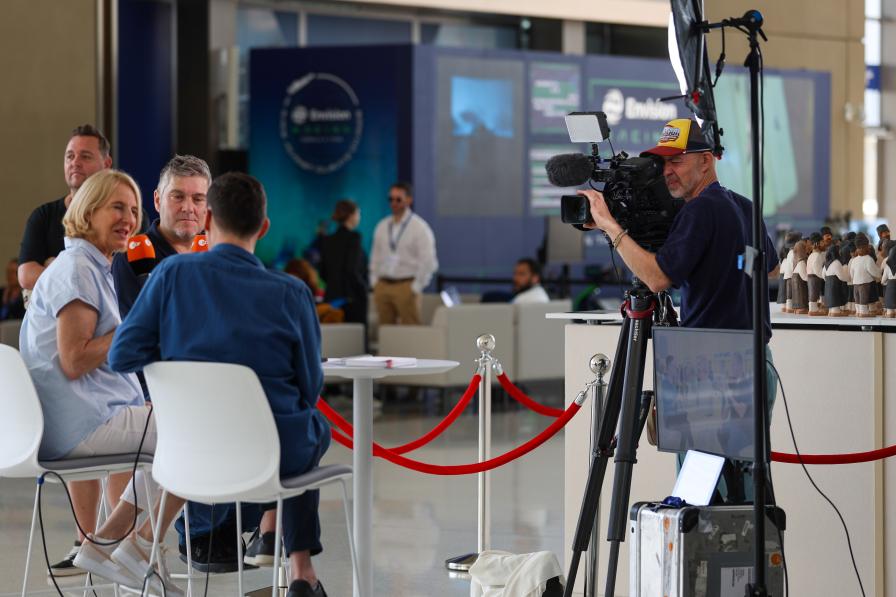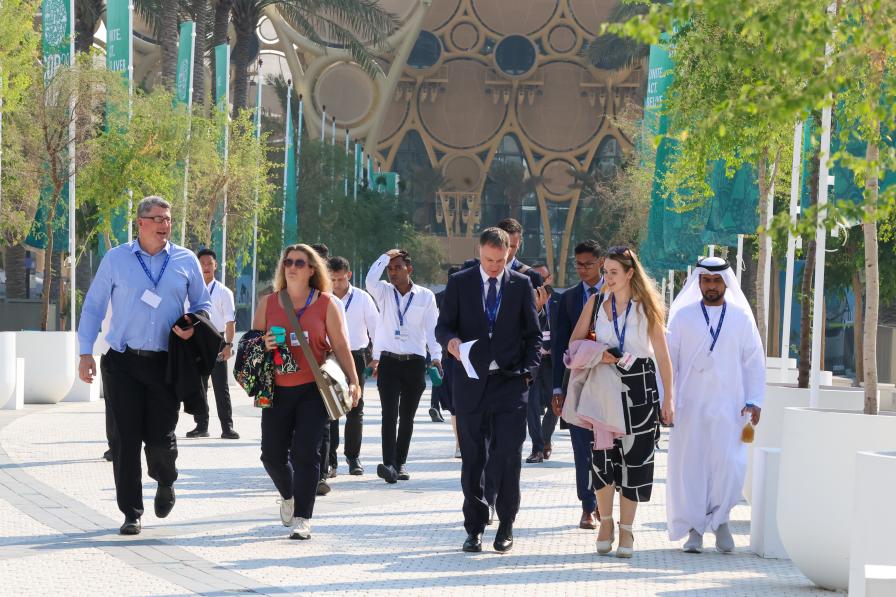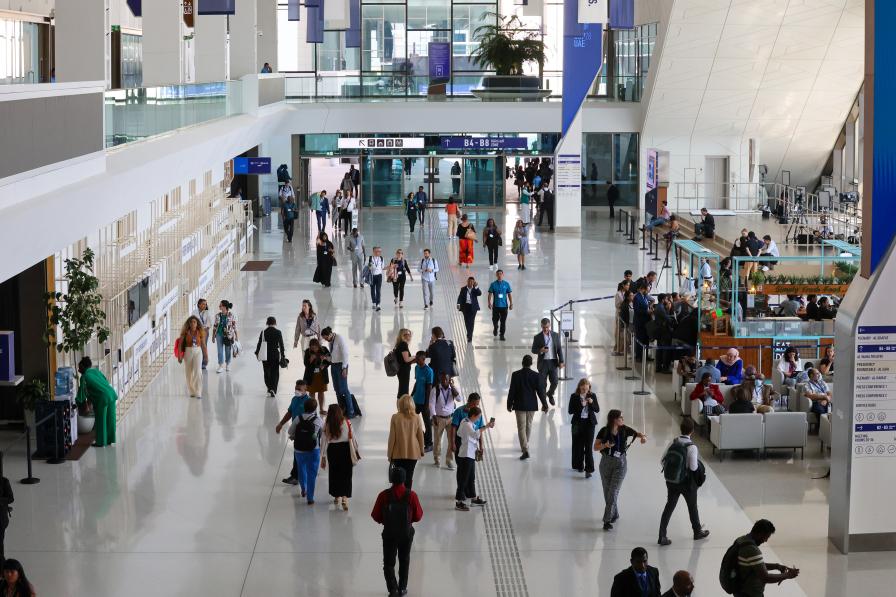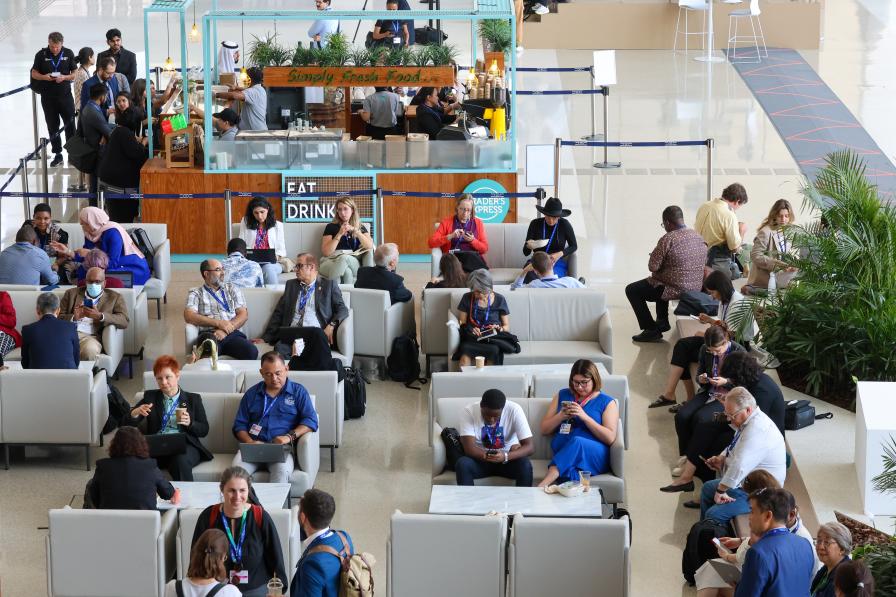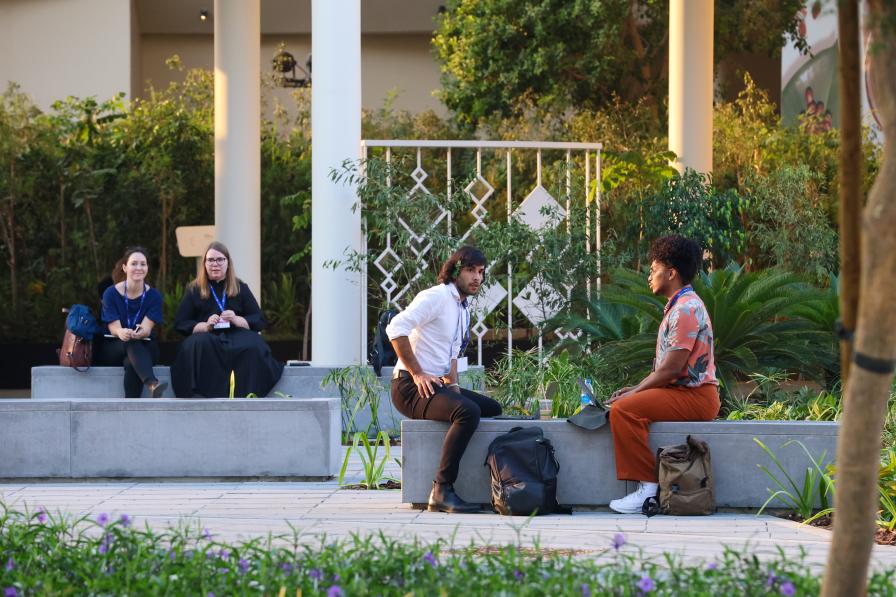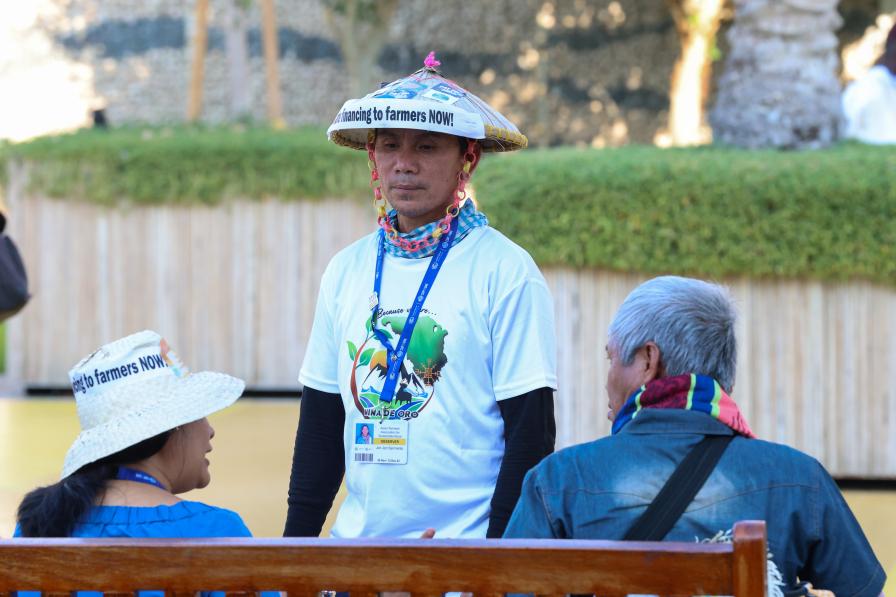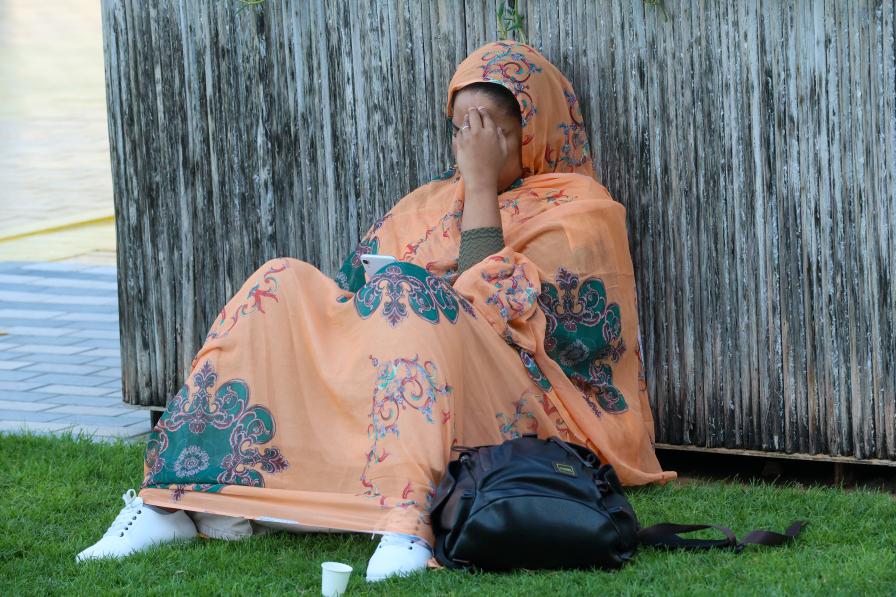There was a general sense of anxiety in the air at the Dubai Climate Change Conference. In the morning, there were only two negotiation sessions on the schedule. This had delegates spending a good part of the day continuously refreshing the schedule, afraid to miss out.
Want to dig deeper into today's talks? Read the full Earth Negotiations Bulletin daily report.
By lunchtime, the only two issues that made it to informal consultations were response measures and the consultations on the hosting agreement for the secretariat of the Santiago Network on loss and damage. Discussions on the Santiago Network progressed successfully, laying the ground for the secretariat’s establishment. On response measures, parties provided detailed comments on substantive elements of draft text, which, considering past discussions on the subject, is a step in the right direction. In addition, finance negotiators met for a good part of the day, this time in an informal informal setting, to churn out draft decisions on their various issues.
Most discussions were conducted at a much higher level. Heads of delegation considered revised text on the Global Goal on Adaptation, prepared by the Chairs of the Subsidiary Bodies (SBs) of the UN Framework Convention on Climate Change (UNFCCC). Several groups and parties said the text would need considerable work, but all viewed it as a basis for negotiations.
The most anticipated event of the day was the Presidency’s “Majlis,” which had ministers convene in a colosseum setting. Although not replete with concrete proposals, the discussions certainly saw some olive branches extended, especially acknowledgments that emission reductions won’t happen at the same speed in all countries and that many developing countries will need support for the transition to renewable energy.
The event left some observers a bit more hopeful that an ambitious agreement, which includes some form of reference to fossil fuels, could be reached. The Presidency recalled the objective to close the Conference on time, on Tuesday, 12 December, and urged everyone to be flexible and think about the common good rather than their self-interest.
To receive free coverage of global environmental events delivered to your inbox, subscribe to the ENB Update newsletter.
All ENB photos are free to use with attribution. For the UN Climate Change Conference - United Arab Emirates 2023 please use: Photo by IISD/ENB | Mike Muzurakis
